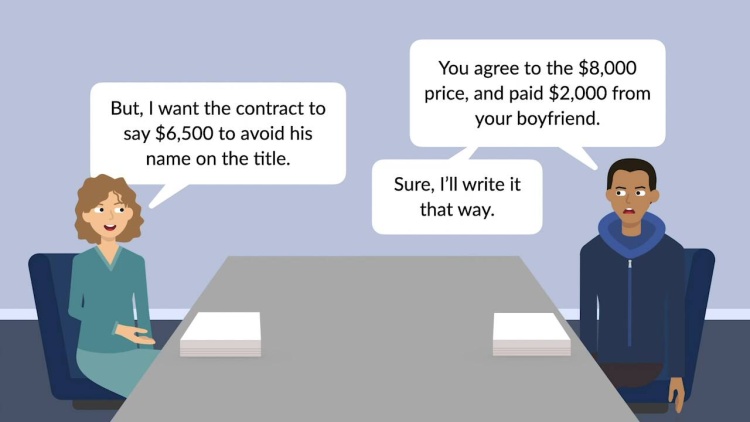Lopez v. Reynoso
Washington Court of Appeals
118 P.3d 398 (2005)

- Written by Josh Lee, JD
Facts
Stephany Lopez (plaintiff) purchased a 1994 Ford Explorer car from Ramon Reynoso (defendant). Reynoso told Lopez that the price of the car was $8,500. The installment sales contract indicated that the car was sold for $6,500 with a $500 down payment. The contract contained a merger clause. Reynoso alleged that Lopez had requested the contract to be drafted this way, but that the purchase price was actually $8,000 with a $2,000 down payment. Lopez did pay $2,000 on the day of or after the sale. However, Lopez was often late with the installment payments under the contract and missed the December 2001 payment. Lopez attempted to make a payment in January 2002, but Reynoso refused because Lopez owed two payments. According to Lopez, she told Reynoso that the $2,000 payment was to be applied to the $6,500 purchase price because the $2,000 payment was made after the contract was entered into by the parties. This would have paid off the full contract when combined with the January 2002 payment. Reynoso refused the payment and repossessed the car in March 2002. Lopez sued Reynoso for breach of contract. The trial court permitted Reynoso to testify regarding the oral agreement pertaining to the alleged reduction in the sales price. The trial court granted judgment to Reynoso. Lopez appealed to the Washington Court of Appeals.
Rule of Law
Issue
Holding and Reasoning (Schultheis, J.)
Dissent (Sweeney, J.)
What to do next…
Here's why 907,000 law students have relied on our case briefs:
- Written by law professors and practitioners, not other law students. 47,100 briefs, keyed to 996 casebooks. Top-notch customer support.
- The right amount of information, includes the facts, issues, rule of law, holding and reasoning, and any concurrences and dissents.
- Access in your classes, works on your mobile and tablet. Massive library of related video lessons and high quality multiple-choice questions.
- Easy to use, uniform format for every case brief. Written in plain English, not in legalese. Our briefs summarize and simplify; they don’t just repeat the court’s language.





